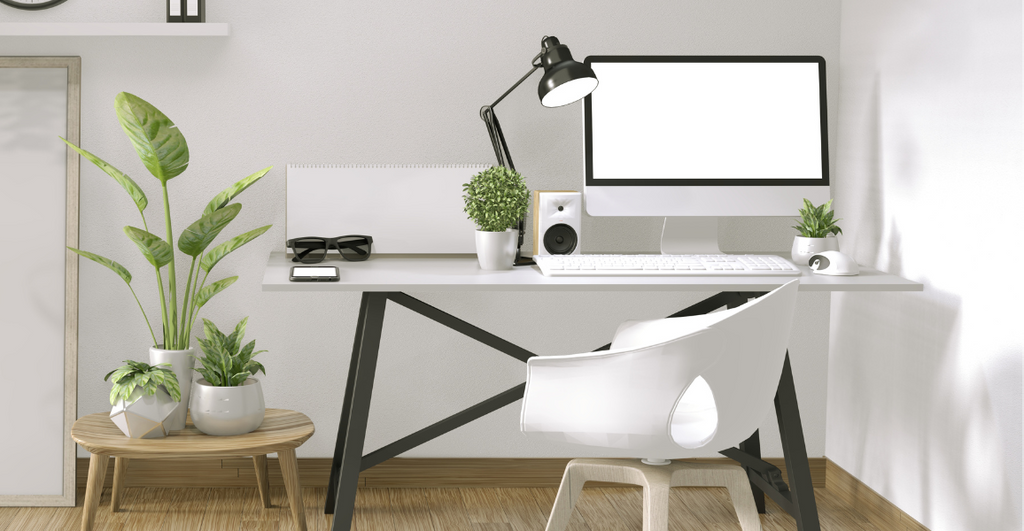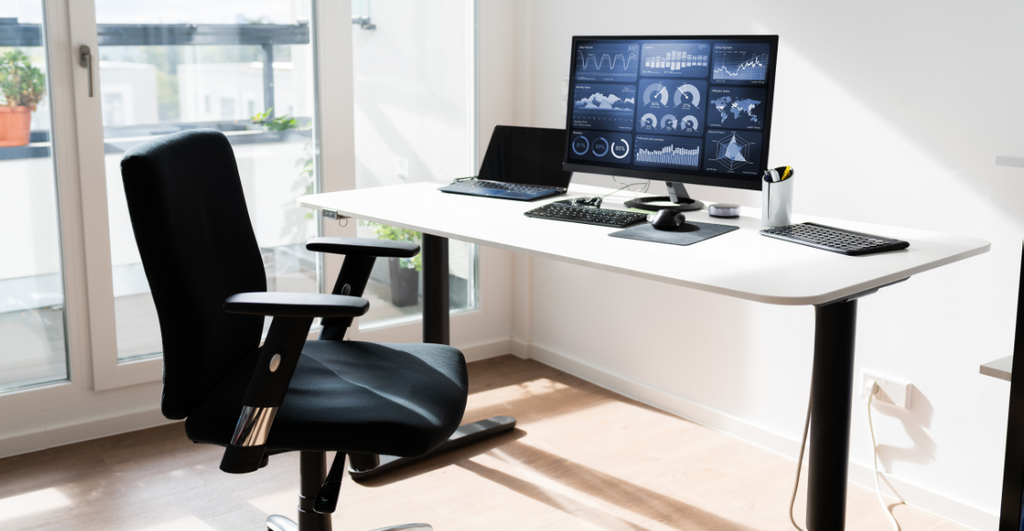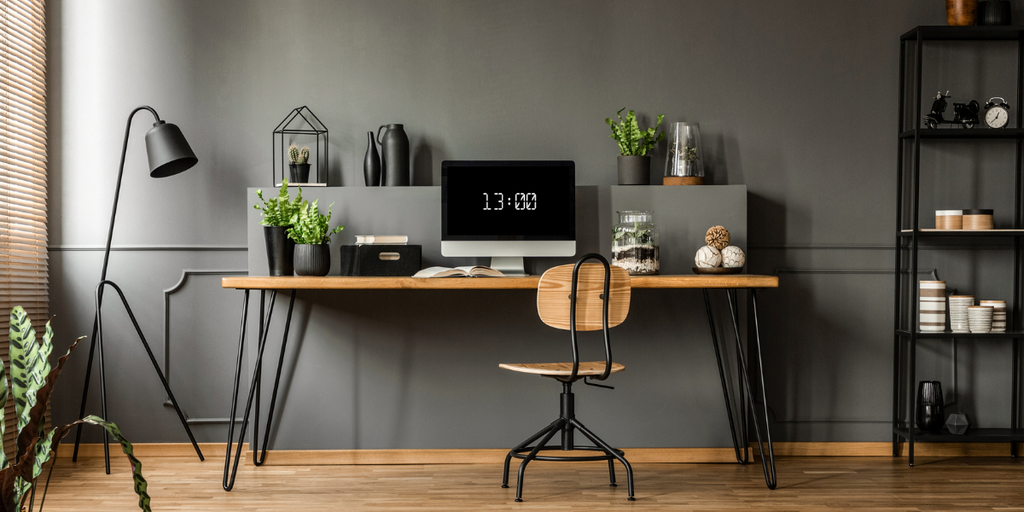In the modern world, the office desk is more than just a piece of furniture; it's a cornerstone of productivity, creativity, and comfort in the workspace. Choosing an office desk is not a decision to be taken lightly; it can significantly impact your daily work life and overall well-being. So, selecting the perfect office desk is important, whether you're setting up a home office, revamping your current workspace, or furnishing a corporate environment.
But how do you make this crucial decision, and what factors should you consider to ensure you choose the ideal desk that meets your needs and preferences? This article is designed to be your ultimate guide, offering a comprehensive exploration of the ins and outs of office desk selection.
Reasons to Consider When Choosing an Office Desk

Functionality and Work Requirements
Your desk should cater to your specific work requirements. Consider the work you do and the tools or equipment you use regularly. For instance, a larger desk with the right configuration is essential if you need multiple monitors, ample desk space, and file storage.
Ergonomics and Comfort
A comfortable and ergonomically designed desk can help prevent long-term health issues like back pain and repetitive strain injuries. Look for desks that allow you to maintain a proper sitting posture, with adjustable features such as height, keyboard tray, and monitor placement.
Available Space and Layout
The available space in your office or workspace will determine the size and layout of your desk. Measure the area where the desk will be placed to ensure it fits comfortably without crowding the room. Consider factors like doors, windows, and electrical outlets.
Storage and Organisation
Your desk's style can significantly impact your workspace's overall look and feel. Consider your preferences and the design aesthetics that resonate with your taste, whether it's a modern, traditional, minimalist, or rustic style.
Durability and Material Selection
Desks can be made of wood, metal, glass, or composite materials, so consider the material's durability in relation to your workspace's wear and tear and factor in the ease of cleaning and maintenance.
How Does Ergonomics Play a Role in Choosing the Perfect Office Desk

Optimal Posture
Ergonomics ensures that the desk allows you to maintain the correct posture while working, meaning your desk should support a neutral and comfortable seated position, with your feet flat on the floor, knees at a 90-degree angle, and your arms resting comfortably on the desk.
Reduced Physical Strain
An ergonomically designed desk reduces physical strain and discomfort. It minimises the risk of conditions like back pain, neck pain, and repetitive strain injuries by promoting a more natural and relaxed body position.
Adjustability
Ergonomic desks often feature adjustable components such as height, keyboard tray, and monitor stand, allowing you to customise the desk to your body's specific dimensions, ensuring that your wrists, arms, and neck are properly aligned and supported.
Cable Management
An ergonomic desk may include cable management solutions, which help keep wires and cords organised and out of the way, reduce the risk of tripping hazards and maintain a tidy workspace.
Improved Productivity
An ergonomically designed workspace enhances productivity. When you're comfortable and free from physical discomfort, you can focus on your tasks more effectively and maintain a higher concentration level.
Long-Term Health Benefits
Investing in an ergonomic desk is an investment in your long-term health. It can help prevent chronic health issues from poor posture and improper workspace setup.
Enhanced Well-Being
An ergonomically optimised workspace contributes to a sense of well-being and job satisfaction. You're more likely to enjoy your work and stay motivated when you're comfortable and free from discomfort.
Which Office Desk Types Are Suitable for Different Purposes
|
Office Desk Type |
Suitable For |
Key Features |
|
Executive Desk |
Executives and Managers |
Large, high-quality, ornate storage |
|
L-Shaped Desk |
Multitasking, Extra Workspace |
L-shaped, spacious, accommodates monitors |
|
Corner Desk |
Maximising Corner Spaces |
Fits into corners, ample work surface |
|
Writing Desk |
Writers, Students, Computer Work |
Compact, minimalistic, simple surface |
|
Computer Desk |
Computer Users |
Keyboard tray, wire management, space |
|
Standing Desk |
Sit-Stand Working |
Height-adjustable reduces sitting risk |
|
Floating Desk |
Small Spaces, Contemporary Look |
Wall-mounted, sleek design |
|
Secretary Desk |
Small Spaces, Compact Workstation |
Compact, enclosed storage compartments |
|
Adjustable Desk Converter |
Sit-Stand Conversion |
Sits on a regular desk, raises and lowers |
How to Determine the Right Size for Your Office Desk

Measure Your Workspace
Start by measuring the area where you plan to place the desk. Consider the space's width, depth, and height, considering any obstructions like doors, windows, or radiators.
Assess the Layout
Think about the layout of your workspace and consider the location of power outlets and data ports, as this may affect where the desk can be placed.
Consider Work Requirements
Evaluate your specific work requirements. If you need multiple monitors, a computer tower, or other equipment, ensure the desk has enough surface area and storage to accommodate them.
Ergonomics
Your desk should allow you to maintain a comfortable posture with your feet flat on the floor, knees at a 90-degree angle, and arms parallel to the ground. Ensure the desk's height and design support this.
Workspace Function
Consider the primary functions of your workspace. You may require a larger desk if it's a dedicated home office for focused work. In contrast, a smaller desk may suffice for occasional tasks in a shared space.
Storage Needs
If you need to keep files, supplies, or personal items within arm's reach, choose a desk with the appropriate storage options, such as drawers or shelves.
Traffic Flow
Think about the traffic flow in the room. Ensure enough space to move comfortably around the desk and access other areas without obstruction.
Aesthetic Preferences
Consider your style and the overall aesthetics of your workspace. A large, imposing desk may work well in a traditional office, while a smaller, minimalist desk may be more suitable for a modern, compact space.
Conclusion
In pursuing the perfect office desk, remember that it's more than furniture; it's where productivity and comfort unite. Your desk should not only fit your space but also support your goals. Whether a sleek modern design or a classic executive statement, the suitable desk can transform your workspace into a hub of productivity and satisfaction. Choose wisely, and make your workdays more enjoyable.








